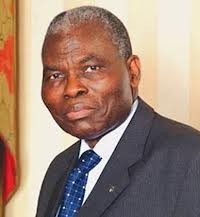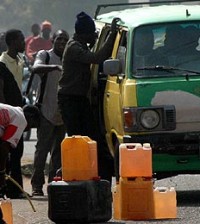Government Yet to Reverse Decision on Fuel Subsidy, Orders 1600 Mass Transit Buses to “Cushion Effects”
The emergency meeting of the Federal Executive Council held earlier today ended with one thing for certain. The government has not yet decided to reverse its decision on the Fuel Subsidy withdrawal.
Despite overwhelming mass protest reactions from civil groups, students, and other classifications of Nigerians, the meeting of the FEC ended today with government vehement in its policy position.
The trio of the Ministers for Trade and Investment, Transportation and Information addressing State House Correspondents divulged that government has made arrangements for 1,600 diesel-powered mass transit buses to be delivered to the country “any moment now”. This is one of the measures government is putting in place to cushion the effects of the subsidy withdrawal.
Olusegun Aganga, minister for trade and investments stated, “we have a duty to turn short term pain to long term gains”. He also disclosed that the buses are part of a N 10 billion revolving loan scheme having a tenure of 5 years and attracting an interest rate of 5%. He further disclosed that the loan is accessible under the Urban Mass Transit Program (UMTP) and is accessible by labour societies and operators in the transport sector.
The minister further added that the FEC was not in the business of “punishing Nigerians” and the buses will be provided “to reduce the pains fellow Nigerians are passing through”.
One of the decisions also made by FEC was that the Ministries, Departments and Agencies should pay workers salaries by the 20th of January.
Also the monthly meeting of the Federation Account Allocation Committee (FAAC) has been moved to the 15th of January.
Commenting on the decisions of the FEC today, Gbenga Ralph, a government critic based in the United Kingdom called the decisions made to be reactionary and questioned on the seriousness of government. He also wondered why 1600 buses would be provided for a population of 150 million Nigerians, and mused on the dilapidated conditions of the roads that these vehicles would undoubtedly traverse.
Commenting further Mr. Ralph stated, “I know they say they are trying to do something re the pain caused by the removal but these things should have been in place prior to the removal so that people won’t feel the transport problem as such. Are they getting the same make and model? It saddens me when I read things like this. It just goes to show that our so called leaders are very wicked. These guys don’t buy fuel for their cars of generator”.







